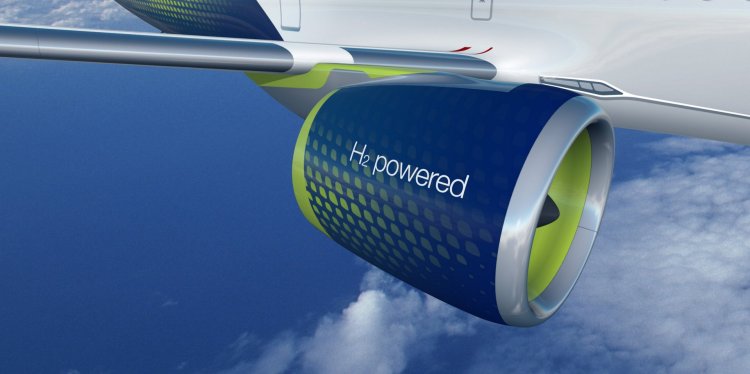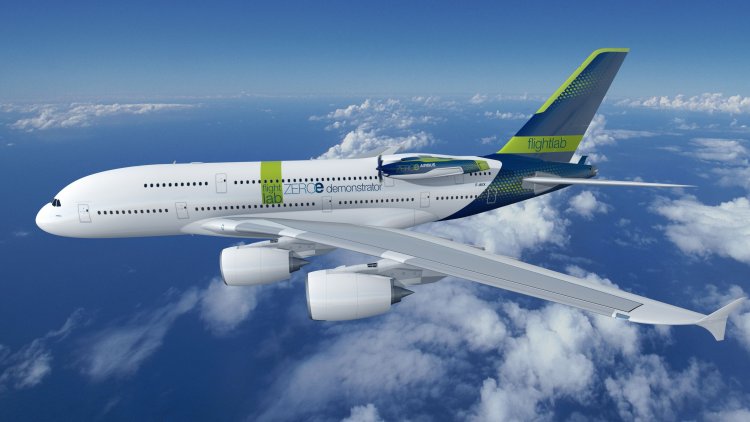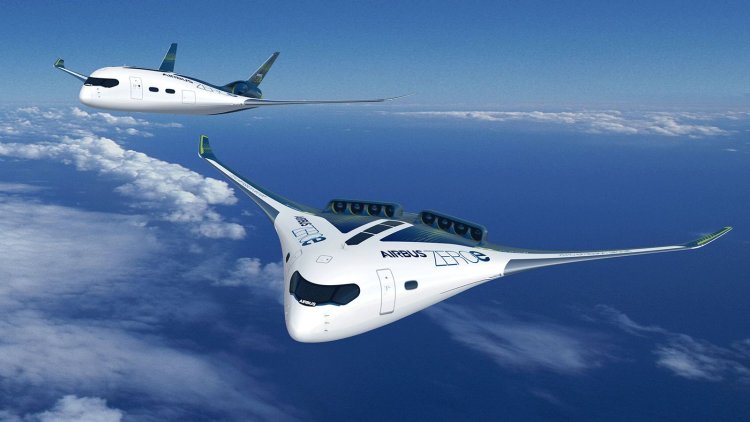€300 billion.. Hydrogen aircraft investment in Europe
Hydrogen, which is produced by separating hydrogen atoms from water molecules, has been touted by policymakers as a critical fuel for decarbonizing heavy industry if made using renewable energy.

Introducing hydrogen aircraft in Europe would require €300 billion in investment and would require a levy on conventional jet fuel.
A new study by the Clean Energy Group finds the magnitude of the challenge facing policymakers in driving green aviation.
Airbus, the world's largest plane maker, said it aims to launch a hydrogen-powered plane with zero carbon emissions by 2035 but warned about the pace of development of the necessary infrastructure.
299 billion.. the hydrogen supply chain in Europe
Published on Monday by the non-governmental organization Transport and the Environment, the study found that the cost of developing Europe's hydrogen supply chain would be €299 billion between 2025 and 2050, consisting largely of the cost of producing, liquefying and distributing green hydrogen.
It estimates that the higher cost will make hydrogen planes 8 percent more expensive than jet-fueled planes in 2035 unless kerosene is taxed.
Taxes on aviation fuel
The study found that if jet fuel were taxed and a price was introduced on carbon emissions, hydrogen aircraft could be 2 percent cheaper to operate.
The research factored in a carbon price of €127 per tonne of CO2 by 2035. The carbon price is now just under €85 per ton, after reaching just over €100 per ton in February. An EU exchange traded system allows companies to trading carbon emissions permits.

Market for zero-emission aircraft
Kerosene taxes have not yet been introduced, but T&E Group has based its calculations for the tax in line with current proposals made by the European Commission. This tax is estimated at 0.37 euros per liter. The price of jet fuel, which roughly tracks crude oil, is now around €0.55 per liter.
“If we want Airbus to walk the talk, we will need to create a market for zero-emission aircraft, by taxing fossil fuels and driving zero-emission aircraft into the future,” said Carlos Lopez de la Ossa, Technical Director of Aviation at T&E.
Airbus said it was "committed to flying the first hydrogen-powered commercial aircraft by 2035 but taxes are not the answer to getting there".
"Incentives that promote investment in technologies and infrastructure, combined with carbon pricing and market-based measures, provide a more cost-effective way to achieve the necessary reduction in aviation emissions," she added.
Battery technology
Aviation has proven to be one of the most difficult industries to decarbonize, in part because battery technology is not advanced enough to power aircraft beyond relatively short distances.

A critical fuel for carbon removal
Hydrogen, which is produced by separating hydrogen atoms from water molecules, has been touted by policymakers as a critical fuel for decarbonizing heavy industry if made using renewable energy.
The aviation industry has committed to hitting zero-carbon targets through a combination of new fuel technologies, including the use of sustainable aviation fuels (SAFs) and hydrogen, as well as more efficient aircraft, engines and air traffic management.
Opinions differ on how quickly hydrogen can help industry decarbonize given the technical challenges involved, but many aviation experts predict that flying will become more expensive.
Hydrogen flight
“Flying in the future will be more expensive. There is now a way around it,” said de la Ossa. “Hydrogen aviation will make economic sense as long as we apply the polluter pays principle. Otherwise, the industry will shoot itself.”


 Shrouq
Shrouq 












